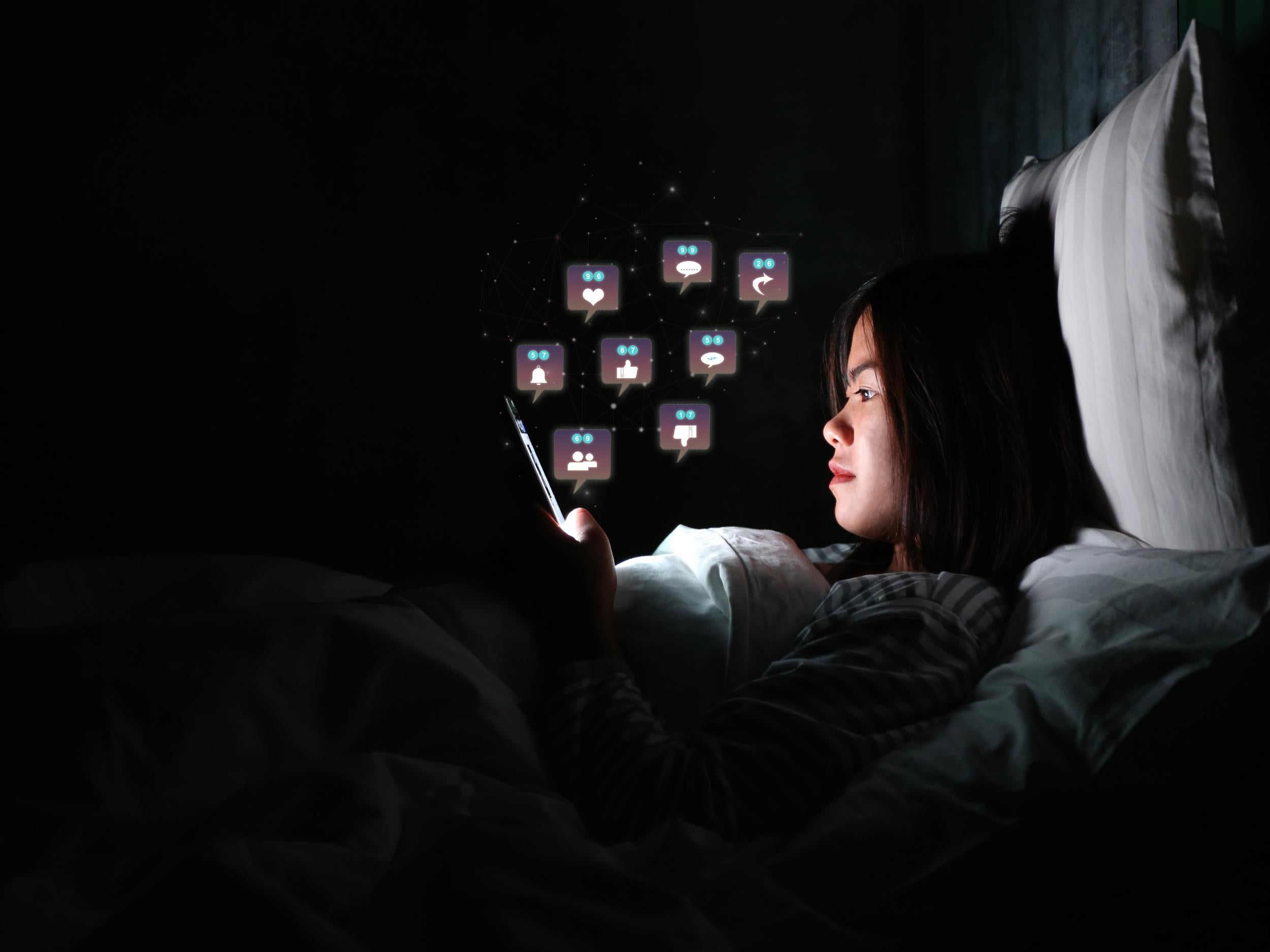Social media harms overstated as study finds impact is 'trivial' on teens' well-being
Fears about social media's harms have been stoked based on 'lacklustre evidence' saying hours in front of the screen add up to harms

Your support helps us to tell the story
From reproductive rights to climate change to Big Tech, The Independent is on the ground when the story is developing. Whether it's investigating the financials of Elon Musk's pro-Trump PAC or producing our latest documentary, 'The A Word', which shines a light on the American women fighting for reproductive rights, we know how important it is to parse out the facts from the messaging.
At such a critical moment in US history, we need reporters on the ground. Your donation allows us to keep sending journalists to speak to both sides of the story.
The Independent is trusted by Americans across the entire political spectrum. And unlike many other quality news outlets, we choose not to lock Americans out of our reporting and analysis with paywalls. We believe quality journalism should be available to everyone, paid for by those who can afford it.
Your support makes all the difference.Fears than being hooked on social media is creating a generation of depressed and anxious teenagers have been overstated, according to a study which found it has a "trivial" effect on life satisfaction.
Ministers and parent groups have raised the alarm about excessive time spent on sites like Facebook, Instagram and Twitter.
But University of Oxford researchers found little evidence to support it making heavy users less content.
They argue that society should "retire the screen time notion", and instead focus on whether particular aspects of online behaviour, or content, are harmful.
"With most of the current debate based on lacklustre evidence, this study represents an important step towards mapping the effects of technology on wellbeing," said Professor Andrew Przybylski, one of the lead authors of the study published in the journal Proceedings of the National Academy of Sciences.
The findings are among the first to try and unpick the complex link between wellbeing and social media use.
"Applying transparent and innovative statistical approaches we show that social media effects are not a one-way street, they are nuanced, reciprocal, possibly contingent on gender, and arguably trivial in size," the authors write.
It suggests that previous studies have failed to account for the fact that teens who were more depressed to begin with may spend more of their time on social media.
Because of this, Prof Preyzbylski says, study's which just look at screen time use and mental health symptoms produce "statistically noisy nonsense".
He added: "On an individual basis, time shouldn't be the thing that parents are worrying about. Thinking about social media like it's a black box that has kind of a ticking clock on top of it - that way of thinking about screen time is almost certainly wrong."
The new study analysed data on 12,000 British teenagers, taken from an eight-year survey of UK households.
Lower life satisfaction led to an increase in social media use and social media use led to lower life satisfaction, but the trends were only "modest", the authors said.
However, these effects were more pronounced in females than males, suggesting that social media use could potentially be more harmful among young women.
"What this shows us is we need to stop looking at social media as a whole and we need to start thinking about the nuances," co-lead author Amy Orben, from the University of Oxford, said.
In the wake of the death of 14-year-old Molly Russell, fears have been raised about content promoting eating disorders or self harm.
Identifying how social media underpins this, or other harmful features would allow policy makers to act, but currently tech companies refuse to share anonymised data on their users for research.
"With the unknowns of social media effects still substantially outnumbering the knowns, it is critical that independent scientists, policymakers, and industry researchers cooperate more closely," the authors wrote.
The Royal College of Paediatrics and Child Health, has previously said that time spent in front of screens can be harmful by interfering with sleep, exercise or real world relationships.
"This paper suggests that social media has limited effect on teenage life satisfaction," said Dr Max Davie, a spokesperson for the RCPCH.
"We recommend that families follow our guidance published earlier this year and continue to avoid screen use for one hour before bed since there are other reasons beside mental health for children to need a good night's sleep."
Join our commenting forum
Join thought-provoking conversations, follow other Independent readers and see their replies
Comments